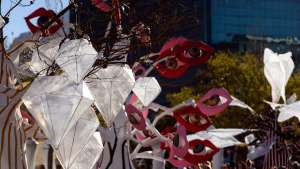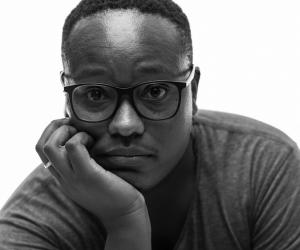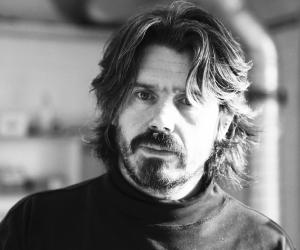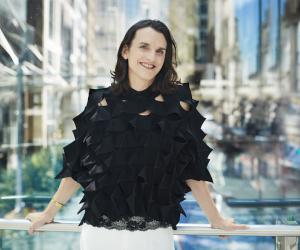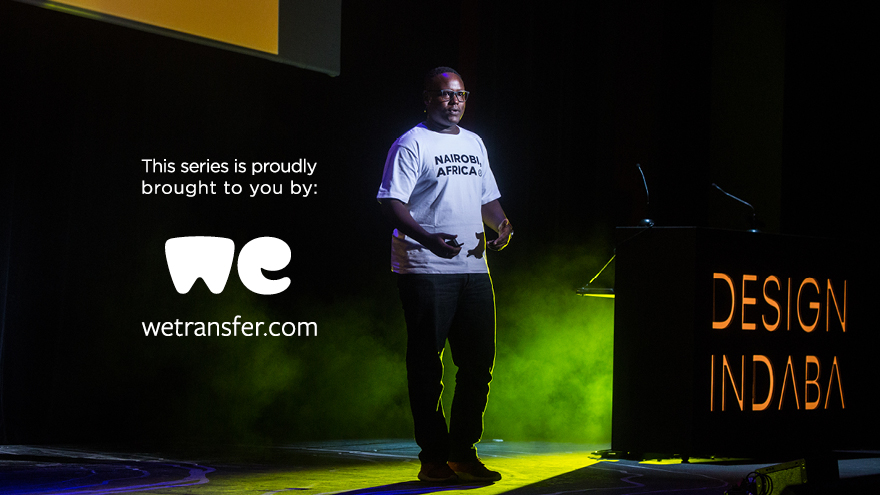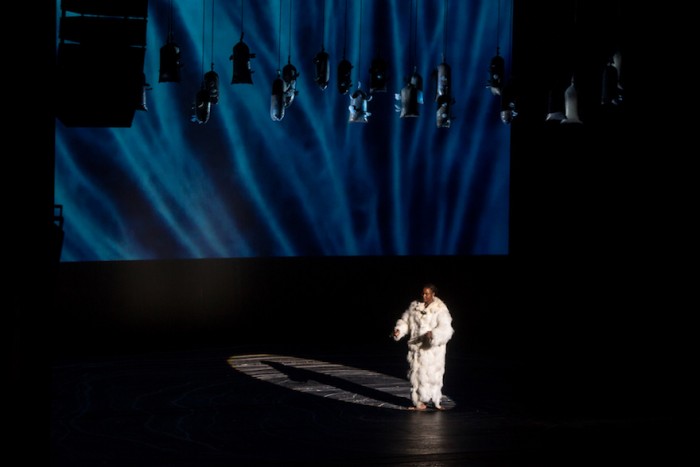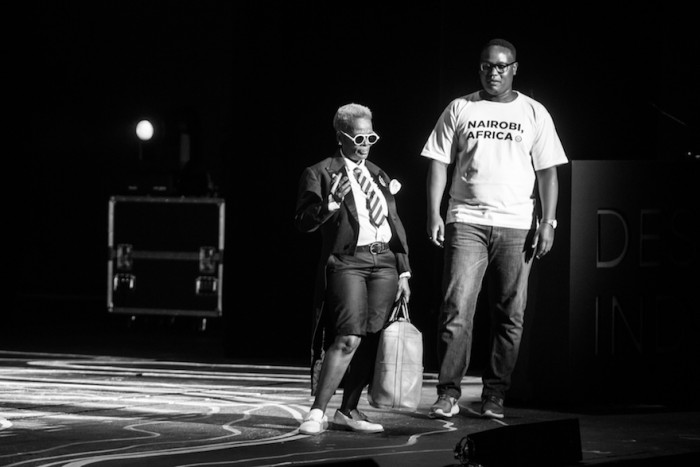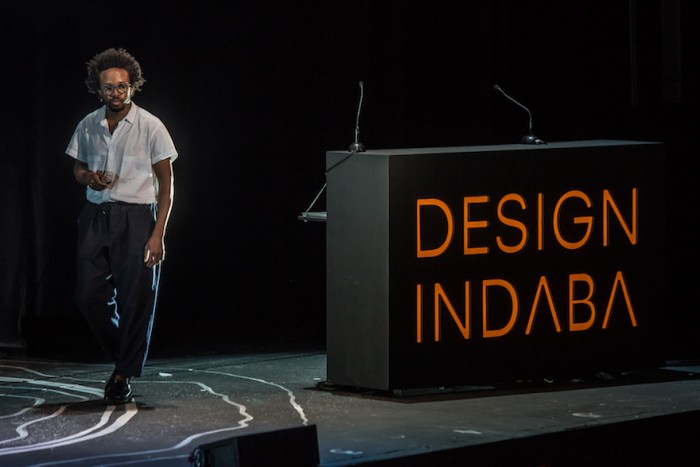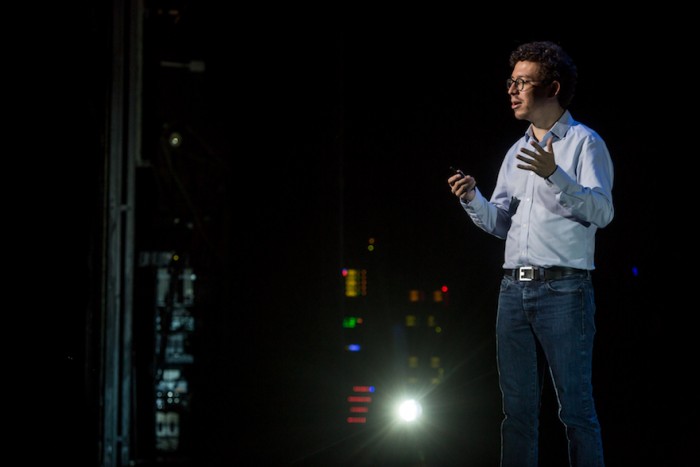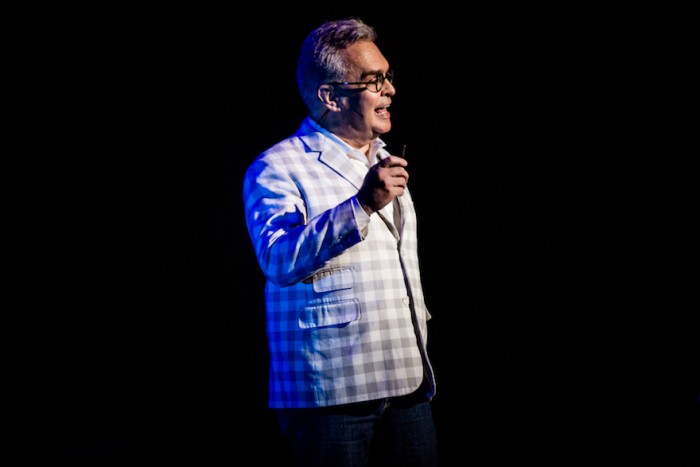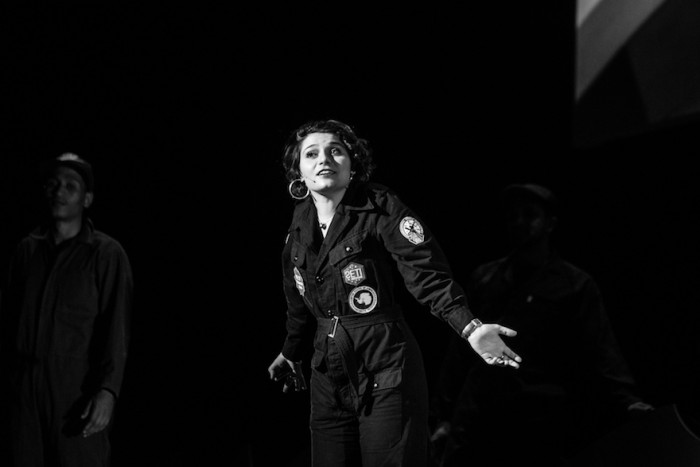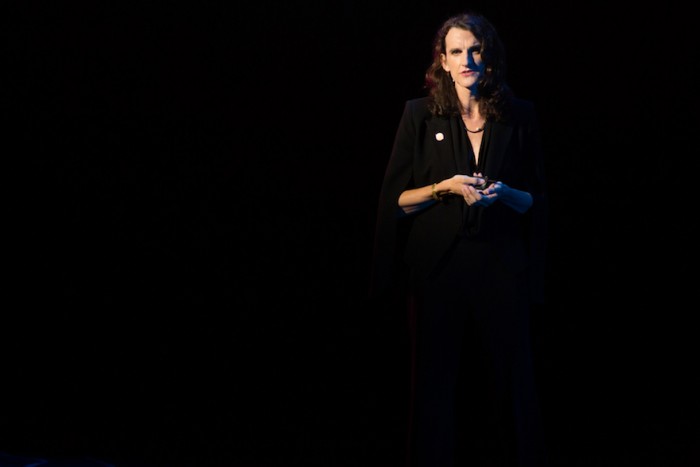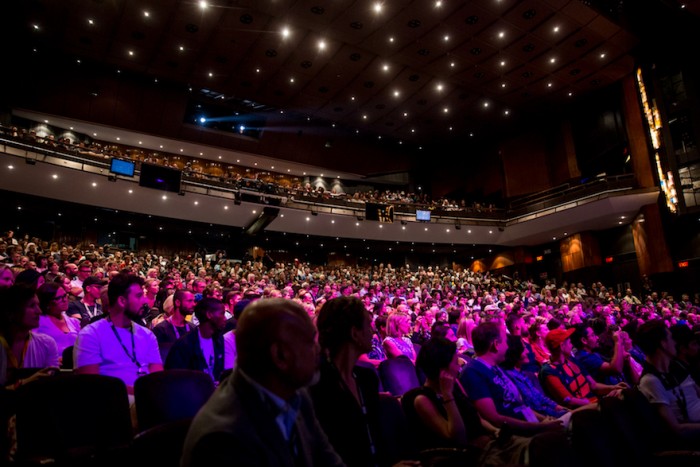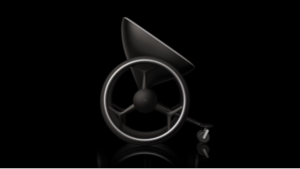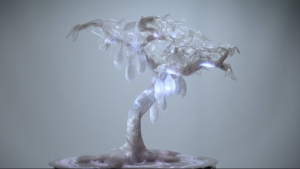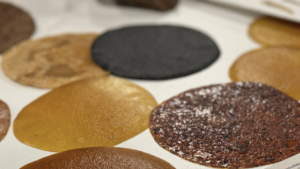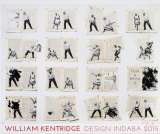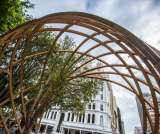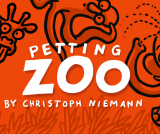From the Series
Global Grad Carina Bonse presented ‘Sii’ (Swimming in it), a simple and effective way to screen bodies of water for E.coli, especially when wind, currents, stormwater runoff and other elemental forces prevent raw sewerage from being swept far enough out to sea.
Kamila Izykowicz, another Global Grad, extended design to the senses with aroma-infused jewellery matched to the phases of a woman’s menstrual cycle.
“Chicken is the biggest immigrant in the world,” said Koen Vanmechelen, who explained how his long-running Cosmopolitan Chicken Project is as much about chickens as it is about identity, globalisation and diversity. He shared the stage with Chido Govera,who described how, as an orphan, she learned to farm mushrooms first to support herself, and then translated that skill to empower her home community and the continent.
Two photographers each showed work that attempts to redress imbalances in representation. In a world that condones rape culture and encourages women to “learn the art of silence,” Thandiwe Msebenzi centres female experiences in her photography, exploring spaces of safety and privacy and celebrating female agency, power and resistance. Osborne Macharia introduced the audience to a stunning Afrofuturist series Magadi, which imagines a group of former female circumcisers who abandoned their former practice to educate young girls escaping early marriage in the art of fashion.
Ekene Ijeoma and Luis von Ahn both used their time on stage to consider the dynamics between humanity and technology. As a creative and a technologist, Ijeoma constantly attempts to bridge the gap between his two disciplines, particularly in socially-minded data visualisation projects. He encouraged us to think likes citizens, not just creatives, to use data to educate and to make conservation pieces, not just masterpieces.
Von Ahn, the man behind CAPTCHA, first apologised for inventing it before describing how he improved on the technology to make reCAPTCHA, which certifies our humanness in online transactions while simultaneously helping to digitise books scanned into the Internet Archive. After retiring “for two weeks,” Von Ahn went on to create Duolingo, the world’s most popular platform for language learning, and a tool for social equality through online education.
And graphic designer Brian Collins argued passionately for design as kindness, or, as he put it, “maximum fucking love.” In an era of massive convergence and where “design has become money,” he warning that strategy and creativity may constantly be in search of each other, but we all must do more to protect creativity becoming overwhelmed by economic incentives. For Collins, the role of the designer is the role of a good host, anticipating the needs and responding with care and love. Because designers are not making the future, they are in competition with it, and the best way to do that is through an intense love of what we do and who we do it for.
As well as echoing themes from Wednesday and Thursday, Friday’s performances were also about chaos, doubt and the exploration of speculative futures.
Bounding onstage in an astronaut’s jumpsuit, the Nelly Ben Hayoun deployed her trademark ‘total bombardment’ technique as she presented her latest project, ‘The Life, the Sea and the Space Viking’. Both a space odyssey and a viking saga, the work merges the fields of astrobiology, terraforming and research of extremophiles as it prepares to document a submersible expedition 11km under the sea to uncover our ‘biological archeology’. Known as the Willy Wonka of design and science, Ben Hayoun uses chaos, curiosity and unbridled joy as a method of public engagement, to bring people as close to the experiences as possible.
Finally, Tea Uglow made a compelling case for doubt as the most interesting part of being alive, and one of the most powerful drivers of our creativity. As Creative Director of Google’s Creative Lab in Sydney, she gets artists and philosophers to attempt to answer questions currently being addressed by engineers and dot-com startups. Downplaying her work as a designer, Uglow said “I draw things on white boards and no one understand what it is”. But that’s sort of the point. Her job is to step away from our familiar reality, to find the edges and to embrace the ‘maybes’ and ‘what ifs’ of life. For example, she answered the question “Is a book only a book because it is bound with a spine?” by creating Google’s Editions at Play an experiment in digital culture that reimagines digital books with qualities that don’t, and could never, exist in print publishing.
And all this before the improv hip hop fivesome Freestyle Love Supreme took the stage. For the final time that week, they reshuffled the day’s events into a freestyle rap that, much like the other speakers on Friday, leaned into chaos and doubt and turned it into something meaningful, spontaneous and joyful.

